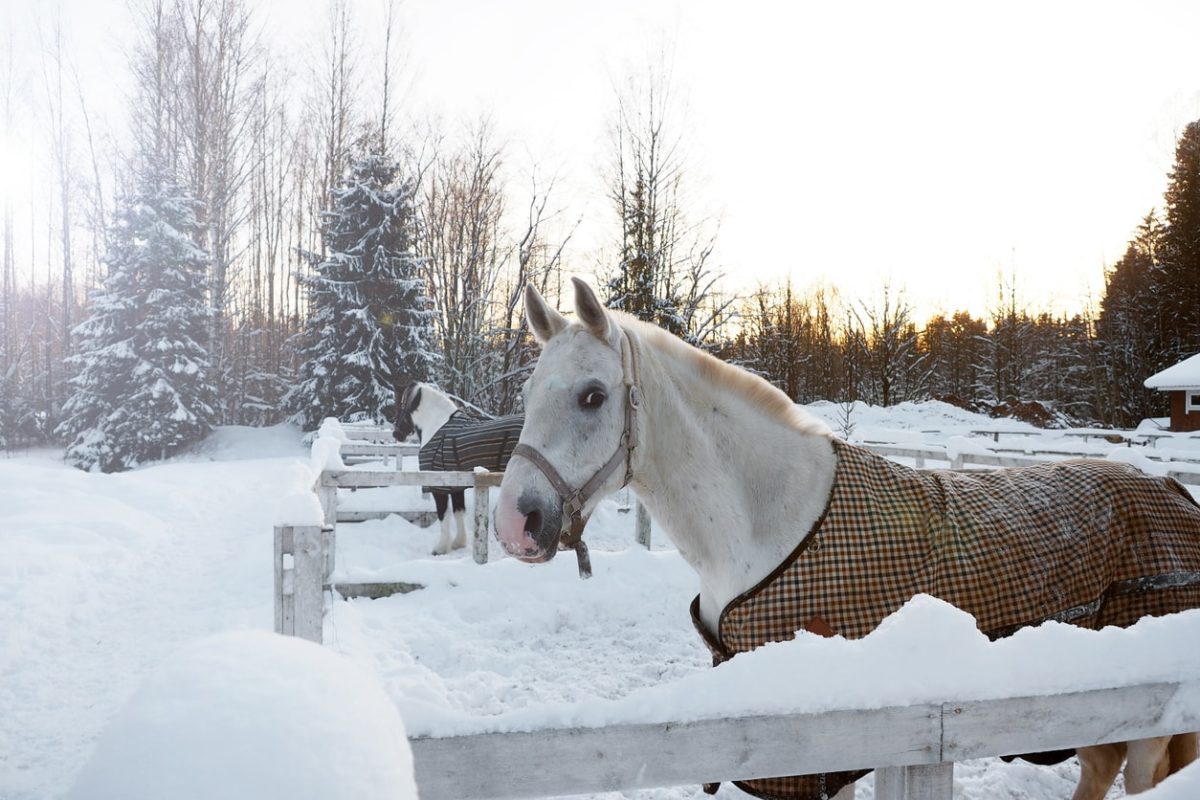
Have you taken care of your winter precautions to care for your horses? So many of the neglect and abuse situations that arise in the winter months can be prevented if owners would obtain and apply the proper information needed to understand winter care for their horses. If you’ve been hit by the shorter days and freezing cold temperatures, don’t just think about yourself and your property. Consider the following horse care steps.
Adequate Shelter
Horses must be provided with appropriate shelter. Cold temperatures alone don’t generally make horses uncomfortable, but wind and moisture can be difficult for them to tolerate, so they must be able to escape the elements. A structural shelter big enough to allow all of the horses in that field to safely get out of the weather is recommended.
Keep in mind that one horse with a very dominant personality that won’t allow more submissive types into the shed may cause an issue. Owners must evaluate the personalities in the herd to ensure that this doesn’t happen.
Provide Sufficient Calories
Horses use significantly more calories keeping warm in the winter than they do any other time of year. High-quality hay should be the staple of any winter diet, especially for horses that are turned out a lot. They should have dry, fresh hay available at all times to keep their caloric losses less than their gains.
Blanket and Check Frequently
Blanketing for horses that live outside can be necessary to keep them warm, dry, and happy. However, things can lurk under a blanket that can create a problem if not detected early. Bacterial skin disease can occur if a horse with a thick hair coat is repeatedly sweating and then drying under a blanket. Changes in body condition, such as a horse that is losing weight rapidly, can also be missed if the blanket isn’t removed frequently to check. Take note of any new lumps and bumps that may not be seen with the blanket on.
Careful Clipping
Horses have a thick winter hair coat designed to protect them. Owners find it helpful to clip the coat, removing heavy hair that slows drying time after a ride. It is fine to turn out appropriately blanketed, clipped horses. However, be very cautious about clipping horses that live outside through the winter because diligence is a must for blanketing, as temperatures fluctuate. It isn’t fair to a horse to remove winter woolies and then not blanket well enough. If you clipped your horses entirely, keep them inside during excessively cold temperatures, as frostbite can occur.
Pay Attention to Footing
Be very cautious about ice on surfaces where your horses walk. Fractured bones or other serious insures can easily occur if they don’t have good footing. Rock salt may be needed.
There are even special pads to prevent the balling-up of snow inside their shoes. If ice and snow are a common presence near your house, make sure that your veterinarian has good access to your horses; plowing/salting driveways is very important in an emergency situation.
About Sine Insurance
At Sine Insurance Group, we are dedicated to providing you with custom tailored insurance policies to protect your assets. Our comprehensive packages have been expertly crafted to serve St. Louis and the surrounding areas for the past 25 years. For more information about our products, contact us today at (636) 947-1177.

